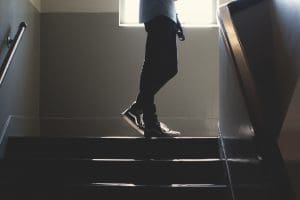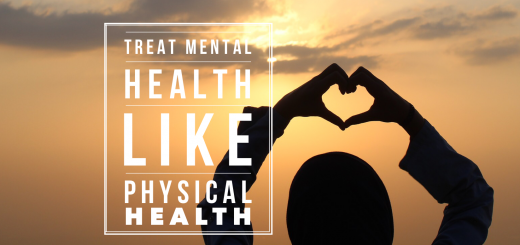Can Lockdown Drills Affect Your Mental Health?
The blog post includes a discussion about school shootings. Please read with caution if any of these items triggers or upsets you.
There have been 15 school shootings in which at least one person was hurt or killed this year. That is about 3 school shootings resulting in injury or death per month. Since the 1970s, this  number has not changed, and if anything, it has grown.
number has not changed, and if anything, it has grown.
Today, active shooter and lockdown drills are the norm in elementary, middle, and high schools, and even at college and university campuses. With all the recent school shootings, this is a responsible and obvious course of action to take in order to prioritize the safety of our youth. But what effect is this having on children? How safe are we really keeping them?
In the 2017-2018 school year, more than 4.1 million students participated in a lockdown or lockdown drill. While lockdowns save lives when there is a real gunman stalking the hallways outside of the classroom door, the lockdown drills themselves inflict psychological harm on the students involved, who think and feel that real danger is imminent. Some kids cry and wet themselves, others have written wills to their families of what should happen to their belongings, and 57% of teens worry that a shooting will happen at their school. In a Staten Island high school in New York City, teens texted their parents saying, “I love you” after rumors of firearms on campus became known. In Albany, NY, students were on lockdown for 6 hours, without access to food or water, when every locker, backpack, student, and staff member were sniffed by police dogs after a threat written on a note was found. One girl from Washington, D.C., familiar with the sounds of gunshots by her home, thought of her school’s lockdowns often, being cautious on the playground during recess that she had once enjoyed worry-free.
While most students may not have long-term consequences, those at risk may experience the lasting effects of childhood trauma. This includes depression, anxiety, substance abuse, and academic and social worsening. School shootings themselves are still rare compared to the population of students in the US – 150 students (children and adults) have died from school shootings in the past 20 years, which, although not a small number in itself, constitutes a tiny percentage of the millions in lockdown in school for the past 20 years, some provoked by the smallest threats. Yet, how do we balance these effects with the responsibility to take no chances and “treat every threat seriously,” or the consequence would be death?
One thought is to engage in full lockdowns only when necessary. This means we need deeper investigation into school threats, and even having  different degrees of lockdowns that could be less traumatizing. Some have a “secure campus” or hold-and-secure mode, in which no one is allowed to enter or leave the building, but teachers can proceed with instruction. However, because there is no standardized protocol of dealing with school threats and activating lockdowns, many students continue to be left with unnecessary panic and nightmares. Even after hours of being in lockdown, some schools may not adequately assure students that the threat is gone and may even have students pat down or held up by armed officers. Some teens are left with stomach pains, headaches, and trouble focusing and sleeping. On top of this, with the exploding growth of social media, news of school threats travel like wildfire, bringing fear to a student’s day at a constant and unpredictable rate.
different degrees of lockdowns that could be less traumatizing. Some have a “secure campus” or hold-and-secure mode, in which no one is allowed to enter or leave the building, but teachers can proceed with instruction. However, because there is no standardized protocol of dealing with school threats and activating lockdowns, many students continue to be left with unnecessary panic and nightmares. Even after hours of being in lockdown, some schools may not adequately assure students that the threat is gone and may even have students pat down or held up by armed officers. Some teens are left with stomach pains, headaches, and trouble focusing and sleeping. On top of this, with the exploding growth of social media, news of school threats travel like wildfire, bringing fear to a student’s day at a constant and unpredictable rate.
This is but one of the stressors that our nation’s youth face, every single day.
Does/did your school have/had lockdowns? If so, what were they like for you? What do you wished could be changed, if anything? Share your thoughts and experiences below!
This SOVA blog post was based off an article from Joe Pinsker in The Atlantic, “When Was the Last Time American Children Were So Afraid?” To access the original post, check it out here.





Recent Comments